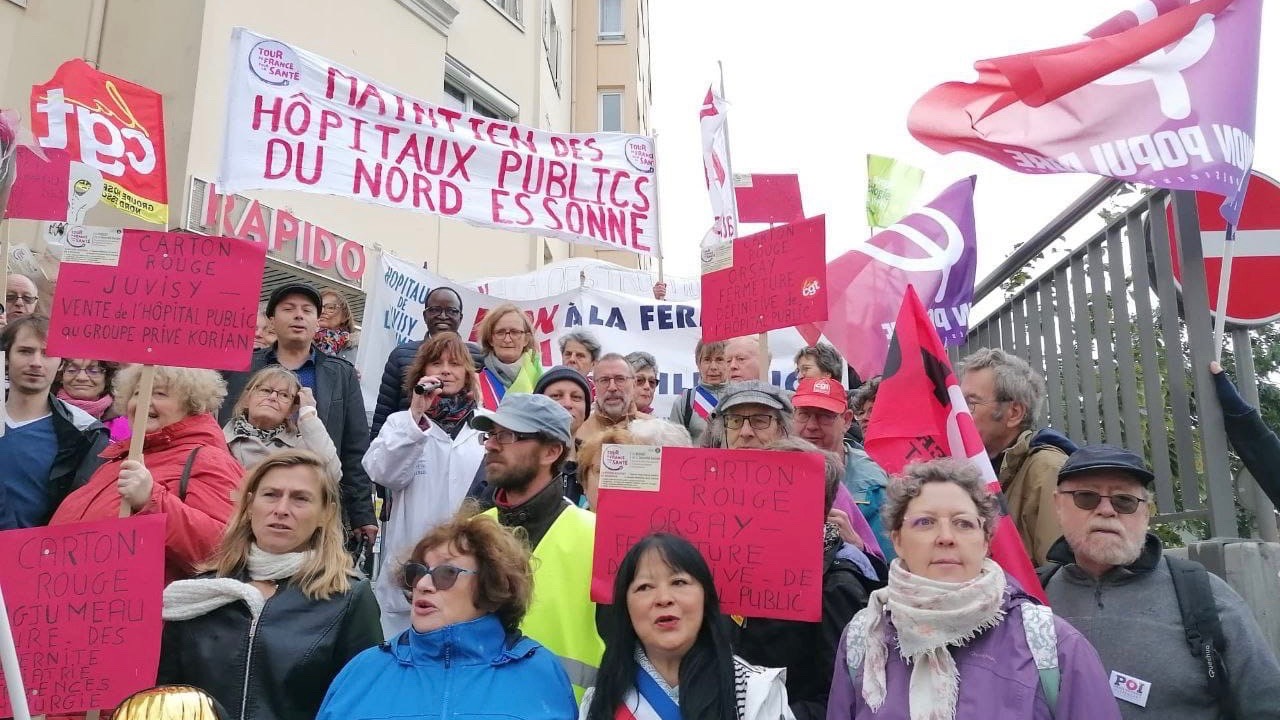A heated debate surrounds the new Social Security Funding Bill (PLFSS 2024) in France. Although the proposal was met with resistance in the National Assembly on October 24, the bill was pushed through on October 25 thanks to a constitutional clause that allows the government to pass a law without a vote.
The bill aims to achieve a 3.5 billion euro saving on health expenditure, further exacerbating the existing health and social crisis. Among other things, the PLFSS 2024 foresees stricter rules on sick leave that would impact workers’ health, as well as an increase in the participation charge patients pay out of pocket in the case of some treatments. In addition to the plans included in the PLFSS, the government has also announced that a new immigration bill will be discussed in early November, including significant cuts to state support for migrants’ health.
Before the National Assembly took up the bill for discussion on October 24, numerous health groups nationwide organized local actions to highlight the negative impact of budget cuts on health services. Four days before the National Assembly session, Vladimir Nieddu from the People’s Health Movement (PHM) France emphasized the importance of a unified movement for the right to health in France that promotes democratic health decision-making over one-sided choices by President Macron’s government. Nieddu shared this call to action during a stop of the ‘Tour de France for Health’ in Lille, a national campaign supported by dozens of health groups and initiatives.
Read more: A ‘Tour de France for Health’ in response to Macron’s austerity measures
He warned that the government disregarded public opinion regarding pension reform, leading to mass protests earlier in the year. Nieddu also stressed that it is essential to continue the fight to prevent the collapse of health and social security systems. The diversity of attendees at the Lille meeting, representing organizations working on issues ranging from sexual and reproductive rights to defending local health services, demonstrated the need for converging and finding common ground.
Throughout the discussion, speakers like Ramon Vila from the trade union SUD Santé Sociaux and Véronique Sehier, former co-president of Planning Familial, focused on how decades of austerity have exacerbated health inequities. If Macron’s government persists with these policies, these inequalities will likely expand, disproportionately affecting women and precarious workers.
Women are already the group mostly affected by the health and social services crisis. Precarious women workers make up more than half of all social security beneficiaries, as Nieddu pointed out, and the decline in local health infrastructure limits their access to adequate healthcare. For example, preventive care, including breast cancer screening, suffers due to underfunding of the public health system.
Urgent action is required to reverse this trend and create a people-centered health and social system, as emphasized during the Lille assembly. The organizations coordinating the ‘Tour de France for Health’ will continue to mobilize, advocating for better health policies leading up to World Health Day and the European election scheduled for mid-2024.
This mobilization will be a part of a regional campaign announced by the trade union confederation European Public Services Union (EPSU), the European Network Against the Commercialization of Health and Social Protection, and PHM Europe. The campaign aims to bring key issues such as addressing health worker shortages and increasing people’s participation in shaping healthcare to the attention of policymakers at both the EU and national levels, as Vila explained to People’s Health Dispatch. He assured that even after the election, though, health movements and trade unions in France and the rest of Europe will remain vigilant regarding the content of health reforms.
People’s Health Dispatch is a fortnightly bulletin published by the People’s Health Movement and Peoples Dispatch. For more articles and to subscribe to People’s Health Dispatch, click here.





